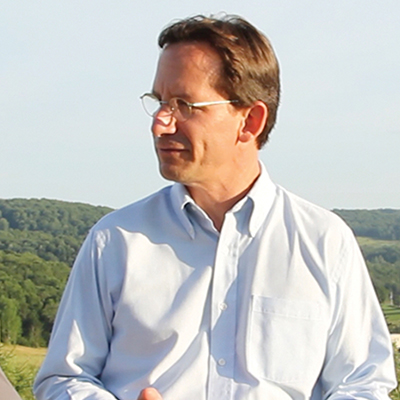
The pandemic polluter loophole
On March 26th, the EPA announced a new policy that suspends enforcement of key provisions of our nation’s environmental laws during the coronavirus pandemic. In particular, the new policy signals the EPA’s willingness to let companies off the hook for failing to monitor or report their pollution in light of “circumstances, including the COVID-19 pandemic.”
How the EPA’s new enforcement policy puts our health at risk
Like many people, I’m now working from home in isolation. But at least I can open the windows or go for a walk to get some fresh air. Not so for people who live in the shadow of massive refineries or other industrial facilities that release toxic pollution into the air.
Just ask Carmen Garrison, a resident of southwest Detroit, where a “toxic stew of chemicals” fills the air. She has suffered headaches, vomiting, burning eyes, and a sore throat — all just from walking outside in her neighborhood.
And now, the U.S. Environmental Protection Agency (EPA) has made it even harder for people such as Carmen Garrison to breathe clean air.
On March 26th, the EPA announced a new policy that suspends enforcement of key provisions of our nation’s environmental laws during the coronavirus pandemic. In particular, the new policy signals the EPA’s willingness to let companies off the hook for failing to monitor or report their pollution in light of “circumstances, including the COVID-19 pandemic.”
Many people do not realize it, but the Clean Air Act and Clean Water Act rely on companies to regularly monitor and report their own pollution. Incredible as it seems, the system works, in large part because plant managers file pollution reports under penalty of perjury. You might be a loyal company man, but you sure aren’t willing to go to jail to cover up pollution.
But without monitoring and reporting, we have no idea what facilities are releasing into the air we breathe. Take ExxonMobil’s refinery and chemical complex in Baytown, Texas. Sprawling over 3,400 acres east of downtown Houston, Exxon’s facility released “10 million pounds of illegal [air] pollution” where tens of thousands of people live and breathe. When our state affiliate Environment Texas took the company to court, a federal judge ruled that the company had “committed 16,386 days of violation of the federal Clean Air Act,” and ordered a record $19.95 million penalty. The key to holding the company accountable was the thousands of pages of Exxon’s own legally mandated pollution reports. Reporting and monitoring documents have been equally vital in dozens of other air pollution cases against Chevron, Shell, and several other companies.
Reporting data is also vital to protecting our rivers, lakes, and streams. Just this week, a huge steel company that dumped cyanide into Lake Michigan was accused of “manipulating water pollution samples” from its facility in Indiana. Without reporting, facilities could easily cover their tracks and keep right on polluting. That’s why former EPA administrator Gina McCarthy called the new (lack of) enforcement policy an “open license to pollute.” The last thing we need during a respiratory pandemic is more toxic air pollution.
We cannot let this pandemic polluter loophole stand.
We need to push back with an ambitious five-step plan.
First, while most Americans are rightfully preoccupied with staying safe from infection at this time, we need to keep shining the spotlight on threats to clean air and clean water. It will take citizen activists, investigative reporters, and editorial boards to expose the folly of the EPA’s inaction.
Second, Congress must step in and hold the EPA accountable for its abdication of enforcement. Whether through oversight hearings, funding mechanisms, or document disclosure, we must make sure that the EPA does not let polluters off the hook, case by case, while no one is looking.
Third, we must empower residents who live in the shadows of major polluting facilities with the tools they need to fight back and survive. And we need to listen to and amplify their voices and experiences.
Fourth, just as the Trump administration is fond of emphasizing state responsibility for environmental protection, now is the time for state leaders to reject the EPA’s policy and make it crystal clear that they will not allow polluters to use the pandemic as a “get out of jail” card.
Finally, when our immediate health crisis subsides, we have to start asking bigger questions about why companies are generating so much toxic pollution in the first place and lead the way to a more sustainable future.
Already, we have progress to report. Just this week, the Chicago Sun-Times issued a strong editorial opposing the EPA’s reckless enforcement policy, and 14 state attorneys general demanded that the EPA rescind it.
But we have to keep working. The air we breathe depends on it.
Authors
John Rumpler
Clean Water Director and Senior Attorney, Environment America
John directs Environment America's efforts to protect our rivers, lakes, streams and drinking water. John’s areas of expertise include lead and other toxic threats to drinking water, factory farms and agribusiness pollution, algal blooms, fracking and the federal Clean Water Act. He previously worked as a staff attorney for Alternatives for Community & Environment and Tobacco Control Resource Center. John lives in Brookline, Mass., with his family, where he enjoys cooking, running, playing tennis, chess and building sandcastles on the beach.


